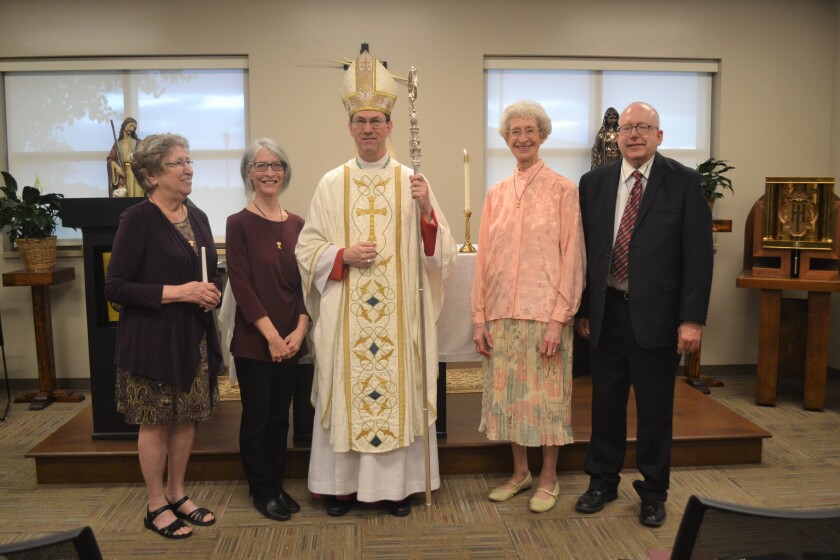
WEST FARGO — On the night of her profession as a lay Franciscan in the small chapel at the back of Holy Cross Church, Diane Kelly’s contented soul beamed outwardly.
“I was so joyful inside, and had such peace. I wish I could have wrapped it up in a bubble,” she says of entering the fraternity of the Secular Franciscan Order. “That whole evening was just perfect, so I know whatever the journey brings, it will be right.”
Kelly was among a group of four who participated on May 31 in a special ceremony and Mass, officiated by Bishop John Folda, joined by several members of the Immaculate Heart of Mary chapter of lay Franciscans from Grand Forks, along with family and friends.
The fraternity aims to follow in the spirit of St. Francis of Assisi, living more devotedly to Christ; not in a cloister or monastery, but in the world as ordinary Christians.
“Had I not been part of this formation and committed myself to this, I would have talked myself out of it,” says Kelly, who considers herself an introvert. “But now, due to the Franciscan way that’s guiding me, it’s helping me stretch, and making me more aware of the directions I take in my daily life — what I say and what I do.”
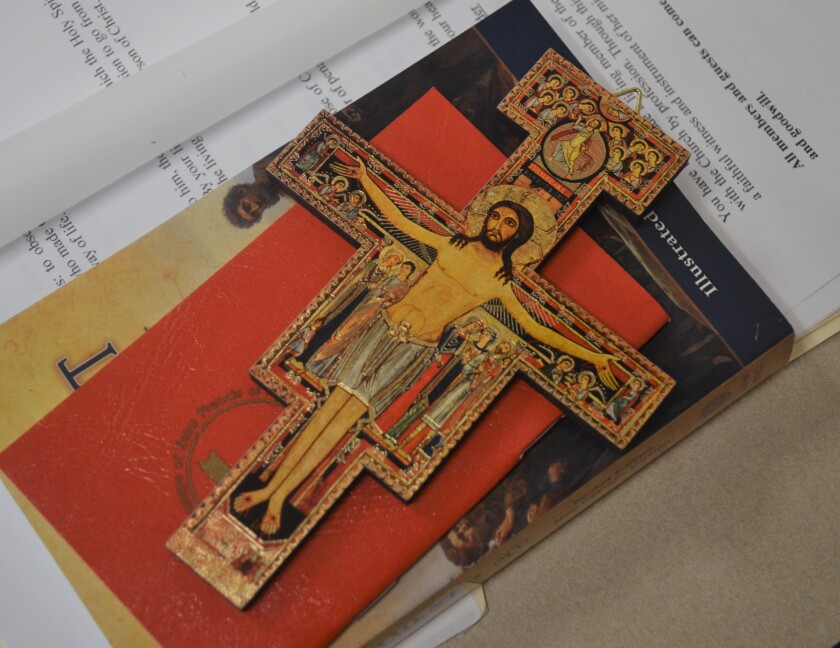
Each new member received five tangible items for their journey: A book containing the Rule of St. Francis to guide them; a copy of the Gospels; a San Damiano Cross to wear around their necks; a candle, symbolizing the light of Christ they are to bring into the world; and a Tau cross, which, in the United States, is part of the habit, or attire, of the Franciscan order.
The Fargo Franciscans hope to eventually branch off into their own distinct chapter in the coming months. If so, it would be named for St. Maximillian Kolbe, who died in a Nazi labor camp during World War II.
During his homily, Folda said that when St. Francis accepted our Lord’s call to holiness, he became “a beacon of grace to others,” drawing others to follow this disposition. “They were attracted to this intimacy he had with our Lord, and they were caught by the simplicity of his life, and the joy he exuded.”
Folda said they had discovered the adventure of being a true follower of Jesus. “I believe your profession as Franciscans will now have a similar effect in your own humble living of your faith, and through your Franciscan charism, you’ll be an instrument of grace in the hands of our Lord.”
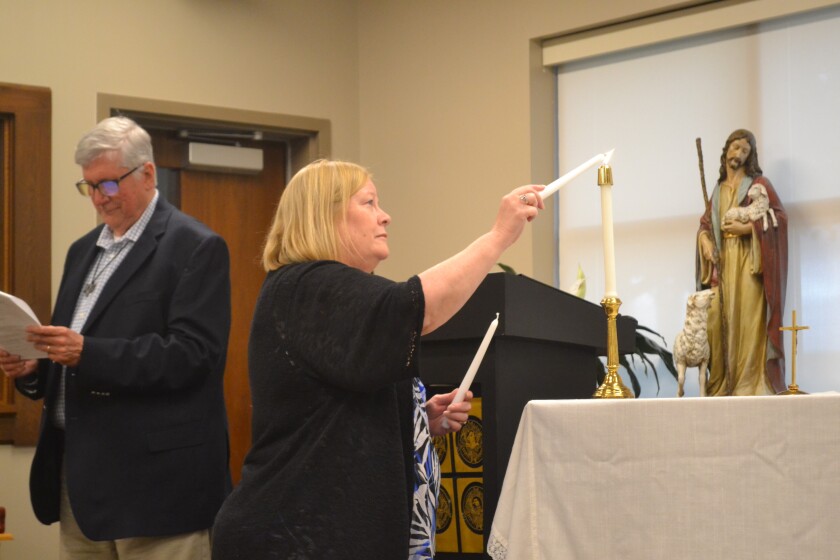
Paving the way
The evening was a culmination of a long discernment for the Fargo foursome, who have been journeying nearly three years with the Grand Forks group — a chapter in existence now for 57 years.
According to Ken Flanagan, Grand Forks, the international order dates back some 800 years, to when St. Francis himself founded it. “We’re the lay secular portion of the Franciscan family.”
Ken and his wife, Kim, were among those welcoming the four into the fraternity, with the other new members including Geraldine Cariveau, Judy Joeb and Bradley Steen.
The Flanagans, who made their profession 23 years ago, also have been involved in chapters in Ohio and Indiana. “We had a young family at the time, so our children grew up with parents who would go to all these Franciscan things.”
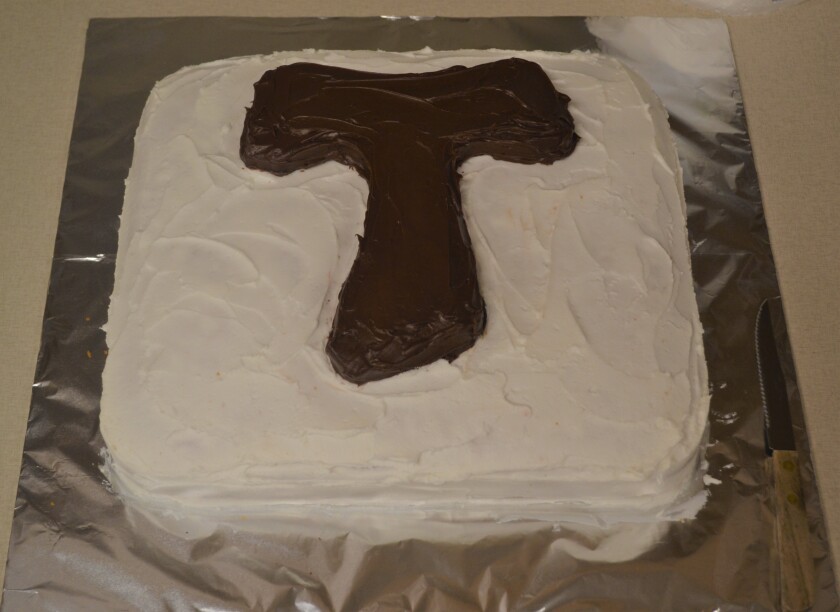
Ken explained the four pillars of the order: prayer, formation, business, and fellowship. The spirit of St. Francis, he says, is about living simply and learning to relinquish earthly pleasures.
“We don’t have to live in poverty, but we’re called to be good stewards of resources, and there’s individual discernment of what that means.”
Often, the particulars don’t become clear until after the profession, he says. “We grow in relinquishing our will to God, and some amazing things happen when you do that,” noting “the rich history of people who’ve been called to this way,” including many canonized saints.
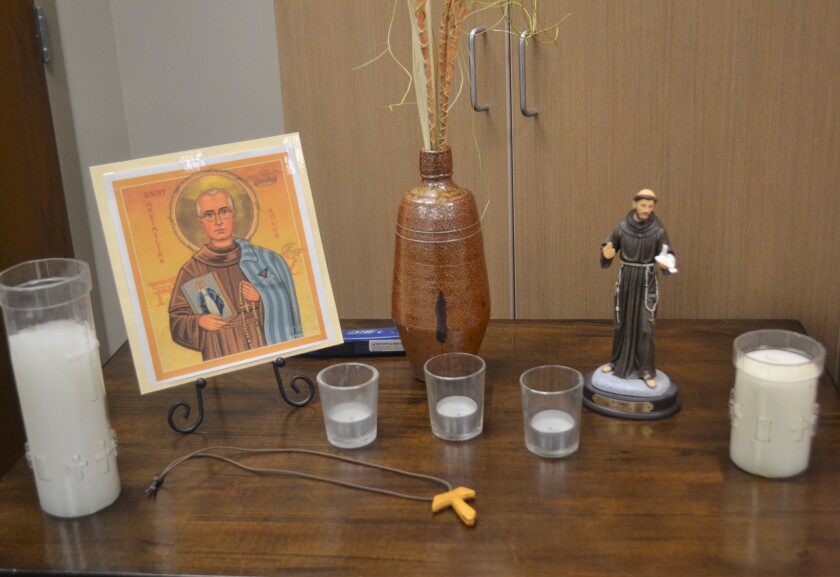
Saint who?
Born in Italy around 1182, St. Francis of Assisi was renowned for drinking and partying in his youth. According to legend, he began receiving visions from God, and heard God directing him to repair the Christian Church and live a life of poverty. He became a devotee of the faith, and his reputation began spreading throughout Christendom.
Jo Lambert, formation director, first encountered St. Francis through “The Peace Prayer,” which, though not written by St. Francis, encompasses his way of life. “It’s other-centered. It’s all about giving, letting go and the glory of God.”
Lambert began her vocation as a religious Franciscan in a convent in Minnesota, but later realized she wasn’t a match for group living. “But I wanted to remain Franciscan, and this suited the flow of my life much better,” she says, adding that she’s been tied to the order for 40 years.
This means studying St. Francis and the Church, assessing the state of the world, and “drawing it all together within your state in life, to bring that to your family and to the world.”
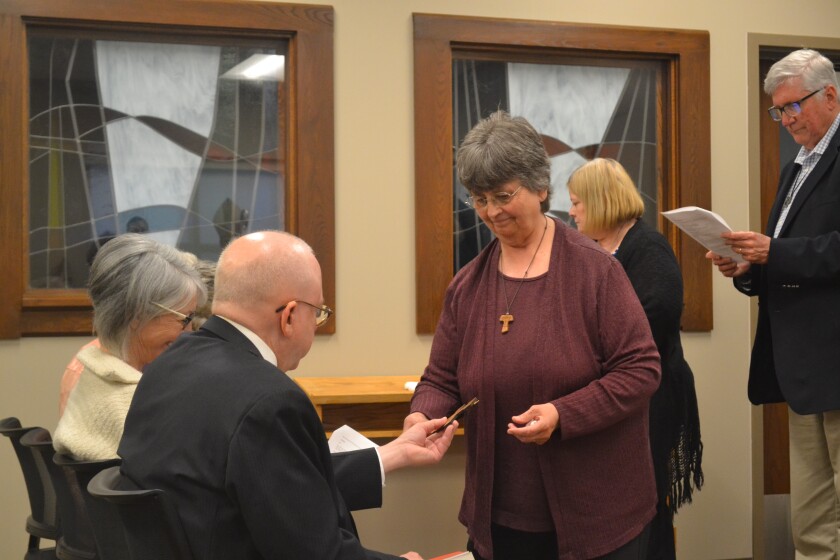
Becoming Franciscan
Following the profession, each new member shared their motivation for joining.
Geraldine Cariveau had always admired the Franciscan sisters as a young girl growing up in Hankinson, N.D., and eventually became a Franciscan sister herself, but later left and married.
“I was with them for 15 years,” she says. “But I got really restless and had to leave. It was God’s work.”
Nevertheless, she still loved the Franciscan way of life, and wanted to retain it somehow. Seeing a story about the chapter in Grand Forks in the Fargo diocesan magazine, New Earth, Cariveau began pursuing the possibility of starting a chapter here, and met with the bishop.
“He was really interested, but still had some questions,” Cariveau says. During that time, he sent “several beautiful letters” to her, ultimately conveying his support.
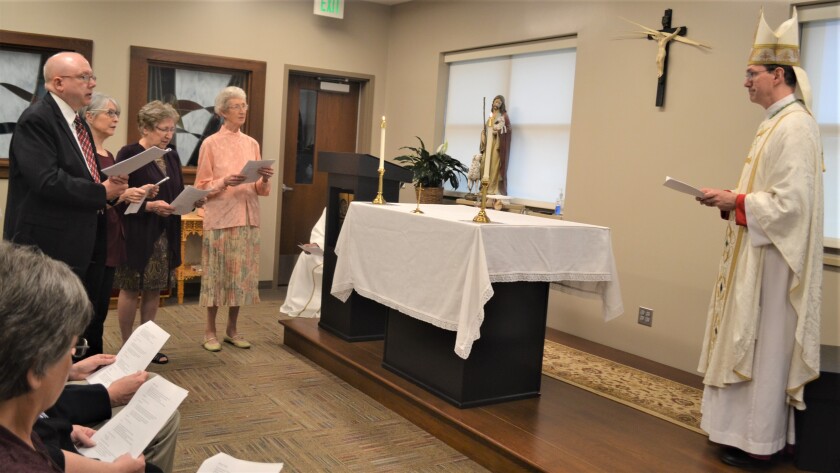
By this time, Bradley Steen had joined her, meeting numerous times for coffee to discuss a Fargo chapter.
“I was always fascinated by monks and monasteries, even years before I came into the Church in 1996,” he says.
While not called to be in a religious community, as a single man, the idea of being connected to a community of people sharing their faith in an intentional way appealed to him, he says, adding that he finds the gift of presence important, “visiting in the nursing home and listening, just sitting and being there for people,” the kind of activity encouraged within the order.
Since his profession, Steen says it’s as if something has fallen into place. “I’ve never been married, and I don’t have children. Sometimes in the Church, you wonder where you fit in… This gives me a little more sense of completion.”
Kelly says she attended the meetings with reluctance initially, but as the profession got closer, she “surrendered.”
“You don’t know where it’s going to lead exactly, but I get goosebumps thinking about it now,” she remarks, adding that St. Francis tried turning to God in everything.
“That’s what I want to strive for.”
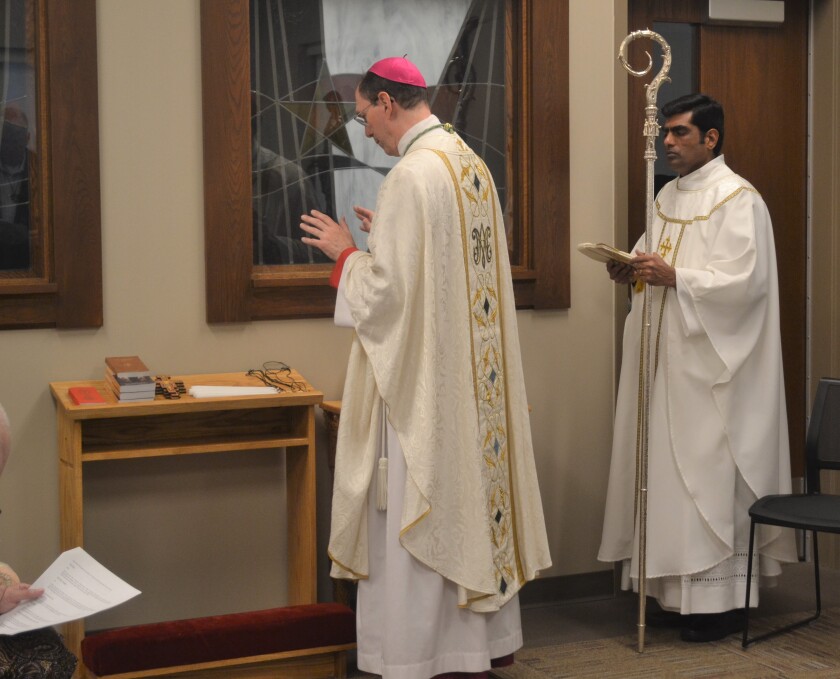
As a teen growing up in Bismarck, Judy Joeb remembers walking with her brother to the drive-in theater to watch the movie “St. Francis” and being captivated.
For years, she’s felt a tug that there was “something more God wanted me to do,” but what? She learned, through reading, that there were religious orders with lay components that non-religious people could join.
Having now found a community locally to live this out, she says, “There’s a saying, ‘There’s a God-shaped hole in all of us,’ and part of that is being filled now.”
[For the sake of having a repository for my newspaper columns and articles, I reprint them here, with permission, a week after their run date. The preceding ran in The Forum newspaper on June 22, 2022.]

Leave a Reply